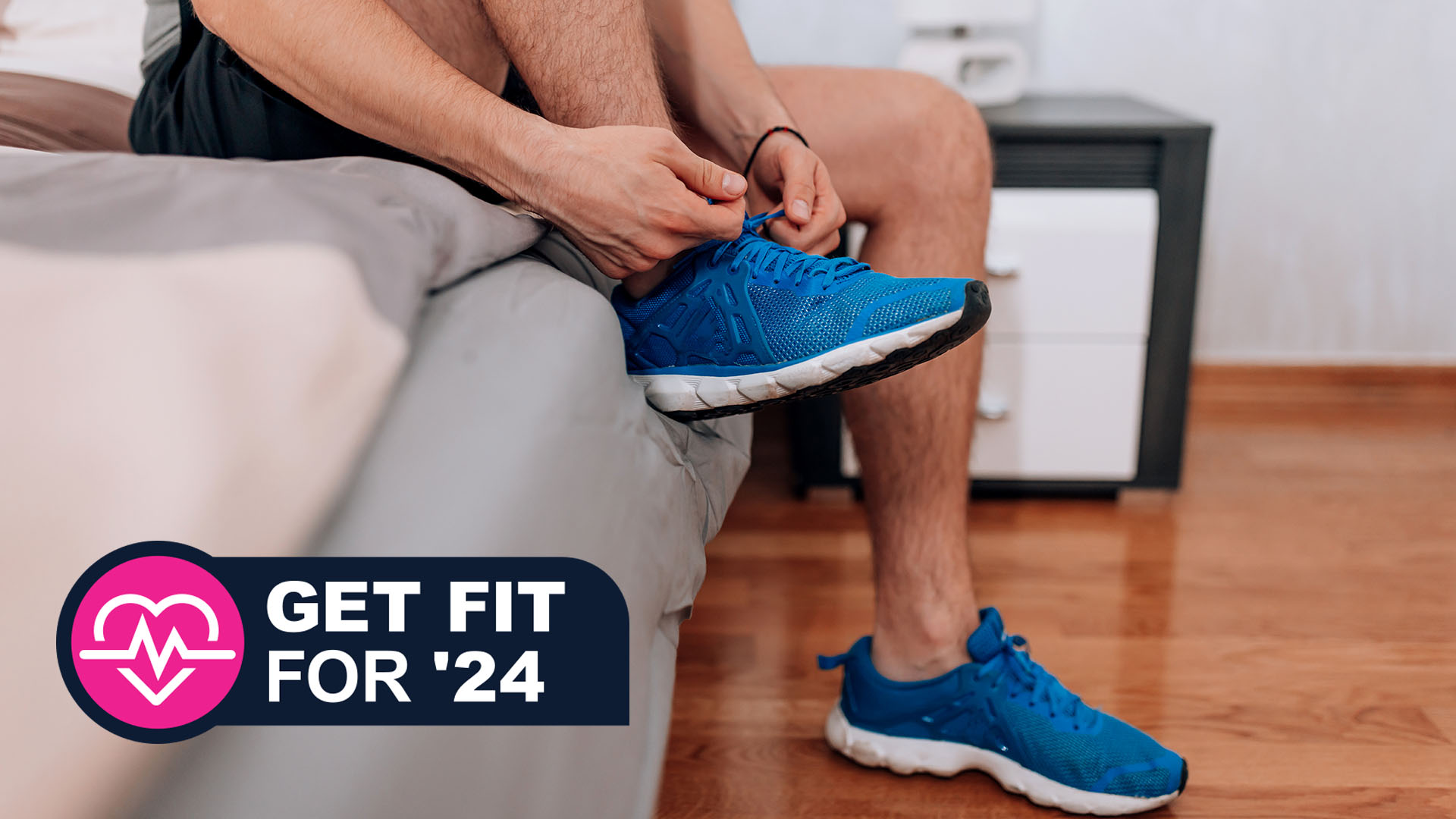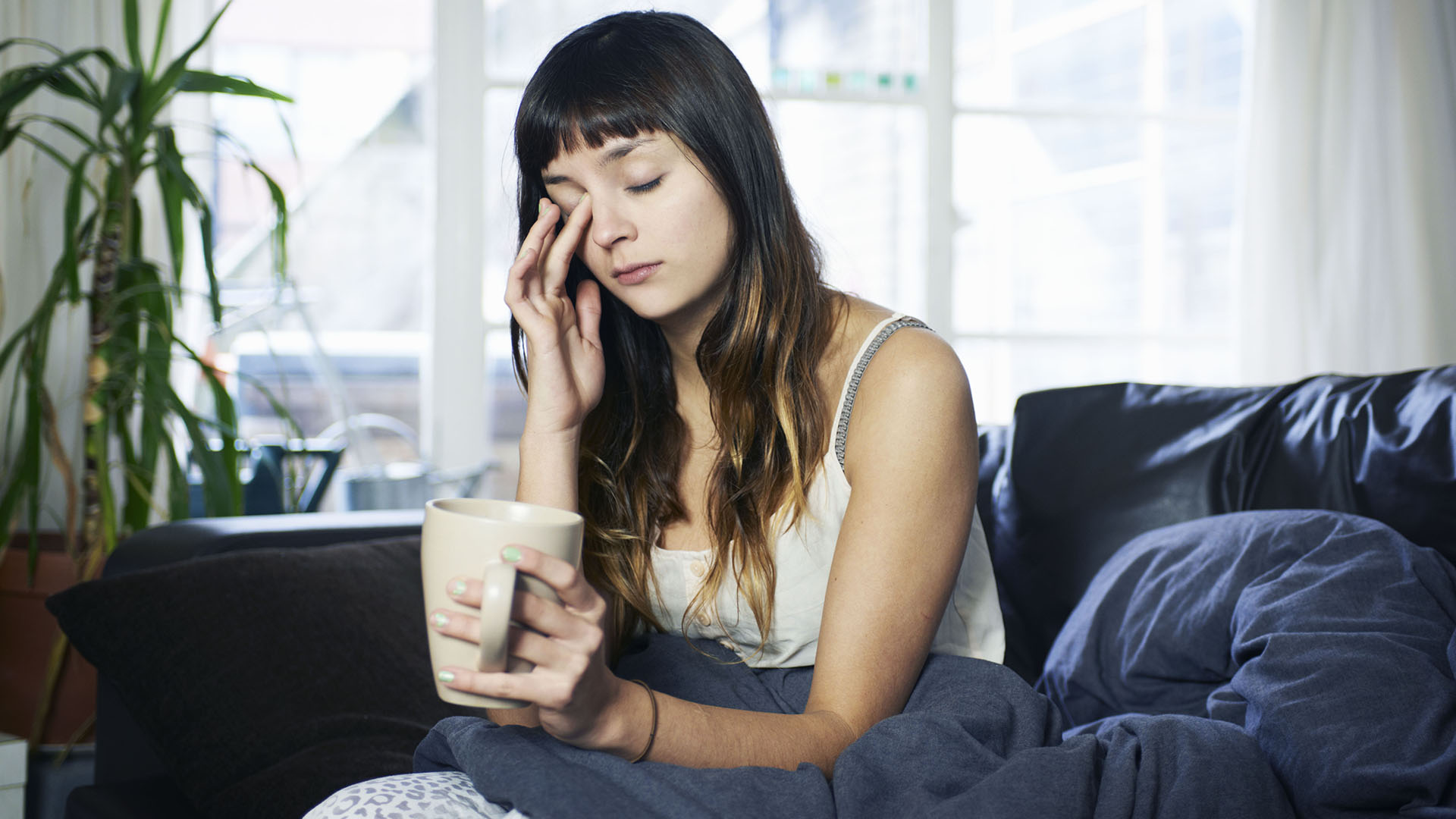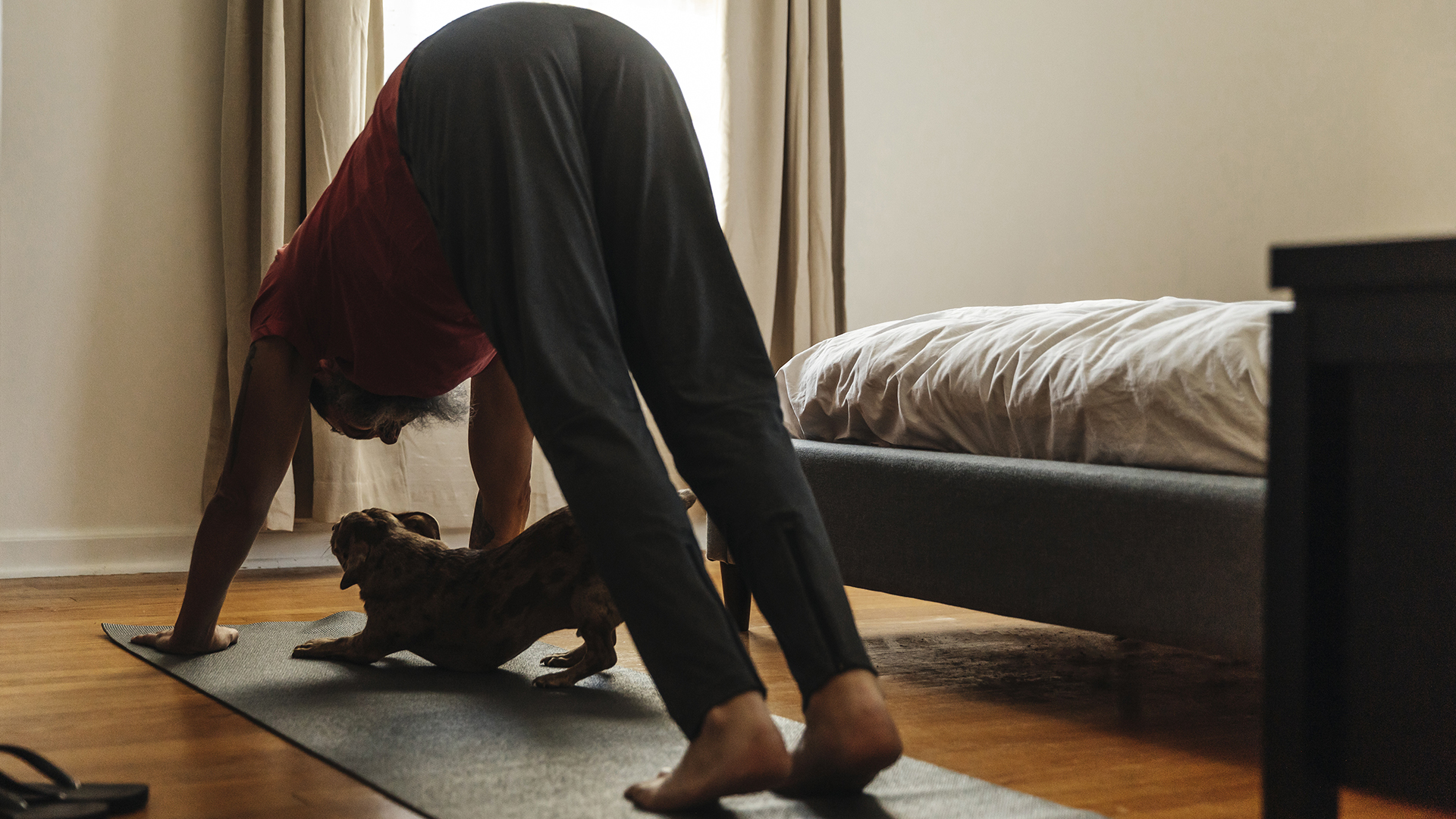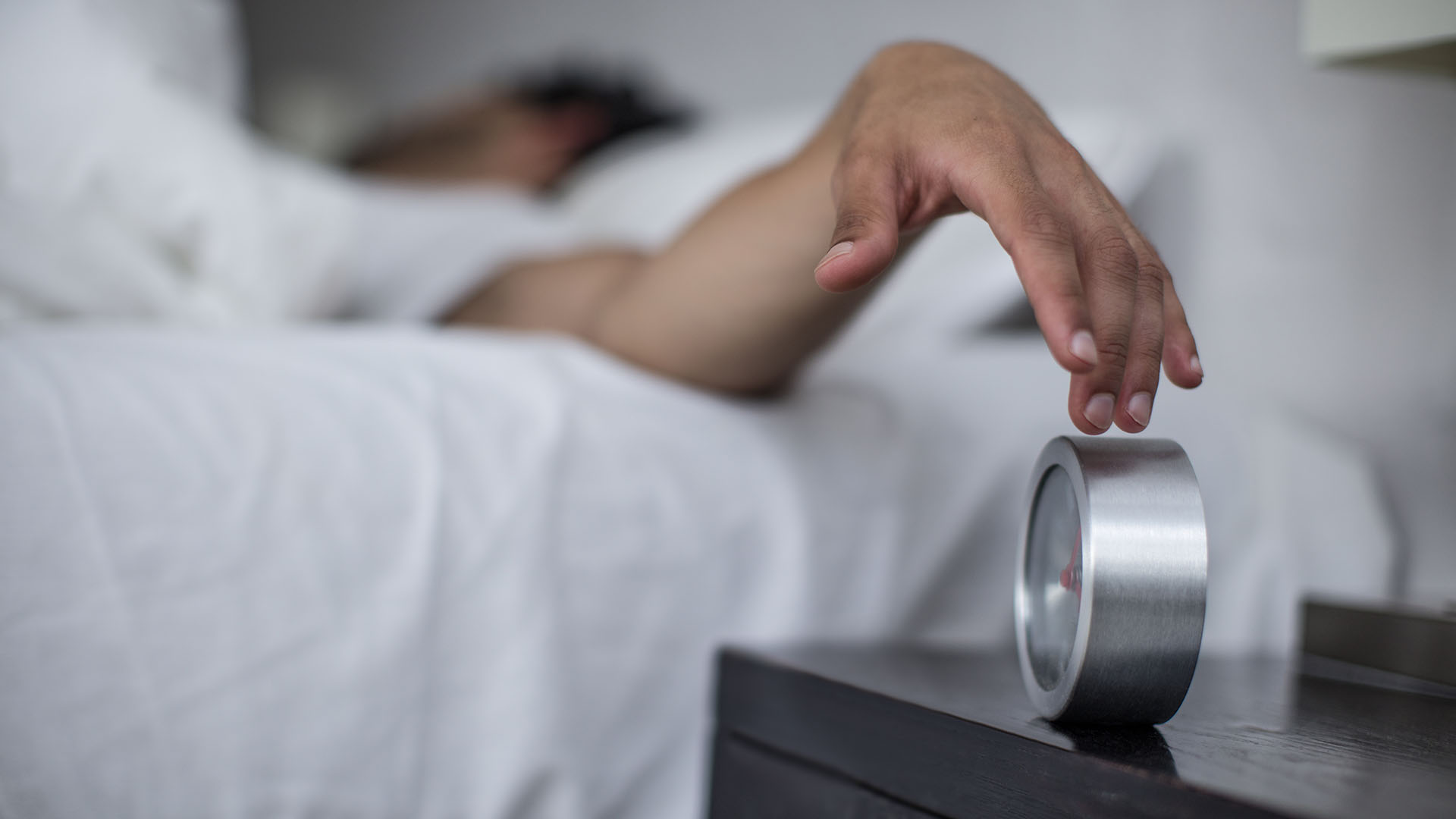Can exercise improve your sleep? We asked a sleep doctor
A behavioral sleep expert shares impactful fitness insights to catch more ZZZs

Sign up for breaking news, reviews, opinion, top tech deals, and more.
You are now subscribed
Your newsletter sign-up was successful
Hoping to get more shuteye in the new year? Determined to revamp your physical fitness routine? If these two goals are on your radar, know that you can kill two birds with one stone by hacking your exercise regimen so it supports better sleep. Sleep and exercise are linked in many ways, with each influencing the other for better or worse.
Keep reading to learn the ins and outs of exercise and sleep – including how one impacts the other, important timing considerations you’ll want to abide by, and if exercise actually has the power to improve insomnia.
How can exercise improve your sleep?
According to behavioral sleep specialist Carleara Weiss, sleep and exercise have a two-way relationship. “Exercise leads to good sleep quality, while poor sleep quality leads to sedentarism,” she explains. There are a couple of key reasons why:
1. Exercise helps regulate your body clock
Physical activity (or a lack thereof) impacts your circadian rhythms, aka your sleep-wake cycles. They hold sway over important hormones involved with energy, alertness, and sleepiness.
“A consistent exercise routine helps the biological clock determine the time of the day and regulate hormones like cortisol, melatonin, and endorphins,” Dr. Weiss continues. “Ultimately, this [can help] reduce sleep onset latency (how long it takes to fall asleep) and improve overall sleep quality.”

2. Exercise helps with thermoregulation
Sign up for breaking news, reviews, opinion, top tech deals, and more.
Many forms of movement will elevate your heart rate, increase blood flow, and make you break a sweat. In addition to keeping your heart healthy, muscles strong, and body in good shape, your workouts can also assist your sleep quality by way of increasing body heat.
“Exercise increases core body temperature, which will later drop and facilitate falling asleep,” Dr. Weiss notes. Most people have an average body temperature of 98.6 degrees Fahrenheit during waking hours, though this measurement drops and varies throughout the night.
Courtesy of the sleep hormone melatonin, a nighttime drop in core body temperature isn’t only normal, but also highly beneficial to help you drift off to sleep. In fact, per a 2012 review in the Journal of Physiological Anthropology, the right temperature is paramount to induce sleep. Sleep onset is most likely to occur only when the body’s core temperature drops, and rarely takes place when core temperature increases.
Can too much exercise interfere with sleep?
Consistent exercise has long been proven to be beneficial for your daytime energy levels, nighttime snoozing, and overall health status. However, overexercising and/or exercising at inopportune times carries the potential to negatively impact your sleep. “Too much exercise, particularly within one to three hours before bedtime, can overstimulate and lead to insomnia,” Dr Weiss warns.
Getting enough high-quality sleep is crucial for everyone at every age. Yet athletes and those with robust workout routines particularly require adequate rest to facilitate recovery. A 2018 review in the journal Frontiers in Physiology notes that overtraining commonly leads to sleep disturbances and reductions in sleep efficiency (i.e. the ratio between time asleep and the total time spent in bed).

In the case of both exercise and sleep, there can be too much of a good thing. Overtraining and oversleeping alike can work counter to your health goals and well-being, so it’s important to strike the right balance.
For reference, Dr. Weiss shares that the ideal recommendation for aerobic exercise “is 150 minutes of moderate-intensity weekly activity, or approximately 30 minutes daily.” This quota – which can also be tweaked to include 75 minutes of high-intensity exercise weekly, in addition to two or more days of full-body strength training – is vetted by organizations including but not limited to the Centers for Disease Control (CDC), the American Heart Association, and the UK's National Health Service (NHS).

Carleara Weiss, PhD, MS, RN, is a behavioral sleep specialist and a Research Assistant Professor at the University at Buffalo, State University of New York. She has a PhD. in nursing, focused on Behavioral Sleep Medicine and Circadian Rhythms, and is a member of the American Academy of Sleep Medicine Sleep Research Society.
When's the best time of day to work out?
Key to using your exercise regimen to improve your sleep is doing the right kinds of exercise at the right time of day, as well as knowing when to stop exercising before bed. So...
Morning / early afternoon: Moderate-to-intense exercise
Generally speaking, if you want to schedule your workouts to promote better sleep, earlier is better. “Some studies show that our peak circadian rhythm performance is between 2 to 6pm,” shares Dr. Weiss. “However, heavy exercise during this time will likely negatively impact sleep.”
As such, she says that both aerobic exercise (i.e. activities that elevate your heart rate like running, biking, and hiking) and strength training (with your own body’s resistance and/or weights, like in HIIT classes or via staples like pushups, squats, and weighted equipment) are beneficial to perform in the morning or early afternoon.

“Practicing sports is also suitable for the morning,” she continues. “They boost endorphins and may help with earlier melatonin release,” the latter of which will let your body know it’s time to begin winding down for bed.
Moreover, if you want to go the extra mile, it could be in your best interest to exercise outdoors shortly after waking up. As the Stanford Lifestyle Medicine Program explains, our sleep-wake cycles are heavily influenced by light exposure. Light is a zeitgeber, meaning it stimulates the body for wakefulness. When paired with exercise, even a short burst of sunlight exposure in the morning can work wonders to promote daytime energy levels and restfulness come nightfall.
Evening: Low-intensity movement
If you enjoy gentle forms of movement – such as strolls around the block after work or dinner, stretching, or gentle yoga – Dr Weiss gives these the green light to enjoy them in the evening.
She especially prizes restorative yoga, which lacks an aerobic component. Instead, it prioritizes calming down the mind and body and helps you tap into the parasympathetic nervous system, aka the 'rest and digest' response. “Gentle, restorative yoga is a good practice for the evening, as it promotes muscle relaxation, lowers respiratory rates, and helps with sleep onset,” she explains.

Can exercise help with insomnia?
If you struggle with chronic insomnia, hacking your exercise routine can help remedy your restless nights in several ways.
According to a 2023 review in the journal Cureus, consistent physical activity can reduce sleep latency (the time it takes to fall asleep), improve sleep quality, and help manage sleep disorders such as insomnia. Dr Weiss adds that a solid workout regimen can increase time spent in deep sleep, which is crucial to help you feel refreshed upon waking and facilitate learning, among other important functions.
In addition, the Cureus review notes that moderate-intensity exercises were especially beneficial for sleep. “Walking, running, swimming, and yoga are good suggestions for insomnia,” Dr. Weiss shares. Again, you’ll do yourself a favor by scheduling aerobic and/or more intense workouts earlier in the day, ideally alongside exposure to sunlight.

“Exercise also reduces anxiety, one of the major causes of insomnia,” Dr Weiss adds. If rumination and worry are among your biggest obstacles to achieving a good night’s rest, getting out of your mind and into your body via exercise is a winning strategy for your sleep, mental health, and well-being at large.
Last but not least, Dr. Weiss underscores the importance of adhering to a calm and relaxing bedtime routine on top of hacking your exercise routine. “Gentle yoga could be incorporated, followed by a warm bath or shower under dim light to favor sleep,” she concludes.
This article is part of TechRadar's Get Fit for '24 week of fitness content.
Michele Ross is a freelance wellness, beauty, and lifestyle writer based in Los Angeles. She contributes to publications including Well+Good, Editorialist, and RealSelf; has worked with brands including HUM Nutrition, Goldfaden MD, and Beast Health; and has served as a content strategist and ghostwriter for doctors and dietitians. Her goal is to empower readers to make informed decisions about their routines that work for their specific needs and concerns.
